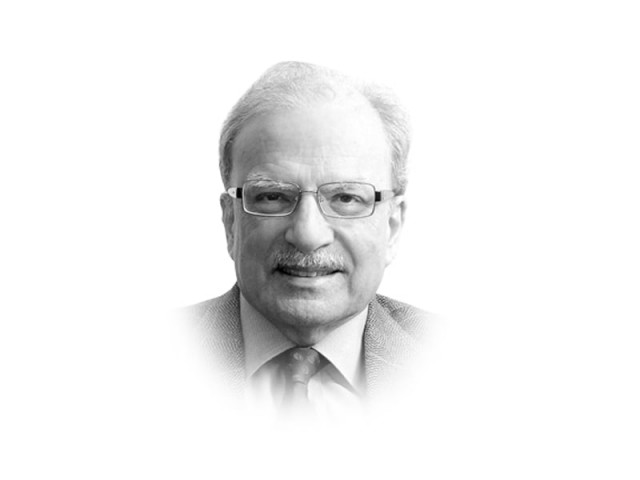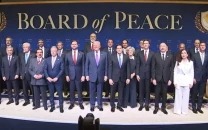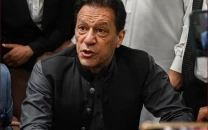The widening gap between the Muslim world and America
Countries where Americans are fast losing influence are Turkey, Afghanistan and Pakistan.

The first is the approach adopted by President Obama soon after assuming the American presidency. In a much anticipated speech delivered at Al Azhar University in Cairo on June 4, 2009 the American president said that his country’s approach to the Muslim world will be different while he was in charge of the making of foreign policy in Washington. “We meet at a time of great tension between the United States and the Muslim world — tension rooted in historical forces that go beyond any current policy debate,” he told his Cairo audience. “The relationship between Islam and the West includes centuries of coexistence and cooperation, but also conflict and religious wars. More recently, tension has been fed by colonialism that denied rights and opportunities to many Muslims, and a cold war in which Muslim-majority countries were too often treated as proxies without regard to their aspirations. Moreover, the sweeping change brought about by modernity and globalisation led many Muslims to view the West as hostile to the traditions of Islam.”
President Obama promised to change these attitudes. “I’ve come here to Cairo to seek a new beginning between the United States and Muslims around the world, one based upon the truth that America and Islam are not exclusive and need not be in competition. Instead, they overlap, and share common principles — principles of justice and progress; tolerance and dignity of all human beings.”
The second reason for the widening of the gap between the West and the Muslim world is the Arab Spring — the string of explosions that have rocked the Arab street in several countries. This has resulted in the demise of two long-serving regimes, and threatens several others. While the West – including the United States – was slow to appreciate the significance of this development, one consequence of this change has become clear. When the history of this extraordinary movement gets to be written, it will be recognised that the address by Obama in Cairo played a big role in emboldening the Arab street.
The policy towards the West in these countries will not be made by authoritarian regimes that could ignore the sentiment of the street. Strong rulers, often supported by their militaries, were able to ignore the aspirations of their people and opt for favoring the strategic positions that suited the West, in particular the United States. Egypt and Pakistan were at the forefront of these moves. Egyptian President Anwar Sadat signed a peace treaty with the state of Israel without asking for the settlement of the Palestine dispute. Pakistan, under three different military regimes, aligned itself closely with Washington, even when some of what it promised to do in return for support by America was not in its strategic interests. With the Muslim street having shown that it can mobilise quickly when the regimes in power adopt unpopular policies, it is highly unlikely that the rulers of this part of the world will have the same room for manoeuvre compared to when they operated in simpler times. The policy space in which they work has been considerably narrowed.
There is also an increase in confidence among the leaders of several countries in the Muslim world. Leading the way is Turkey, a country that had for decades attempted to become a part of the western world but is now governed by a party and an individual who are determined to follow an independent line. According to Anthony Shadid, a Pulitzer Prize-winning journalist writing for The New York Times, “there is a longstanding debate over whether Turkey has tilted east after decades of embracing the West as a Nato member and almost reflexively allied with the United States. It still nominally embraces the goal of joining the European Union, carrying out reforms mandated by the entry process that have made Turkey a far more moderate place. But sensing a decline of American power in the region, Turkish officials have become sharply more assertive in the Middle East, priding themselves on keeping open channels to virtually every party”.
Even Afghanistan, beholden to the United States for keeping an unpopular regime in power and pouring billions of dollars into the country for what is called nation-building, has become assertive. Hamid Karzai, the country’s president, has warned Nato that he will not tolerate any more air attacks on civilian targets, even if they are suspected of harbouring the enemy. Pakistan is passing through a similar reassessment of its relations with Washington, especially after the May 2 attack on Abbottabad that killed Osama bin Laden. There are many in Pakistan — perhaps a large majority — who believe that the rise of Islamic extremism has to be checked and that the people operating outside the purview of the law have to be brought under control. Terrorism cannot be tolerated as a way of forcing onto the rest the worldview of a small segment of the population who wish to follow a different way of life and have a different approach to the world outside. That said, there is a seeming consensus emerging in the country that the war against terrorism will have to be fought on Pakistan’s terms and not on terms dictated from the outside.
The narrowing of the space within which policymakers can operate in the Muslim world will have enormous consequences for the countries in the region. One result will be the widening of the gap between them and the West, unless the latter makes some fundamental adjustments of its own.
Published in The Express Tribune, June 6th, 2011.



















COMMENTS
Comments are moderated and generally will be posted if they are on-topic and not abusive.
For more information, please see our Comments FAQ